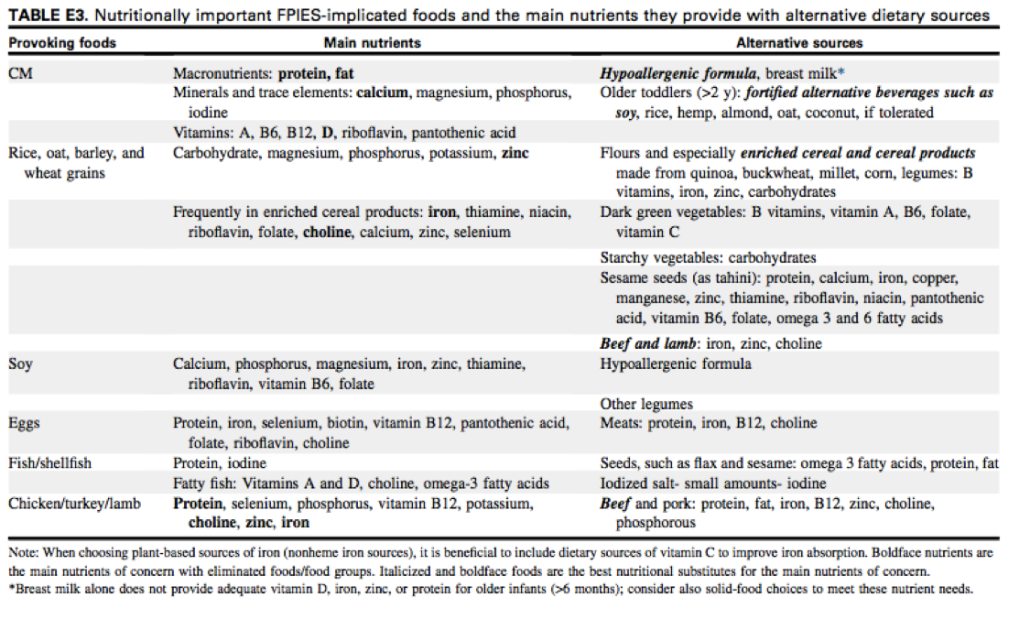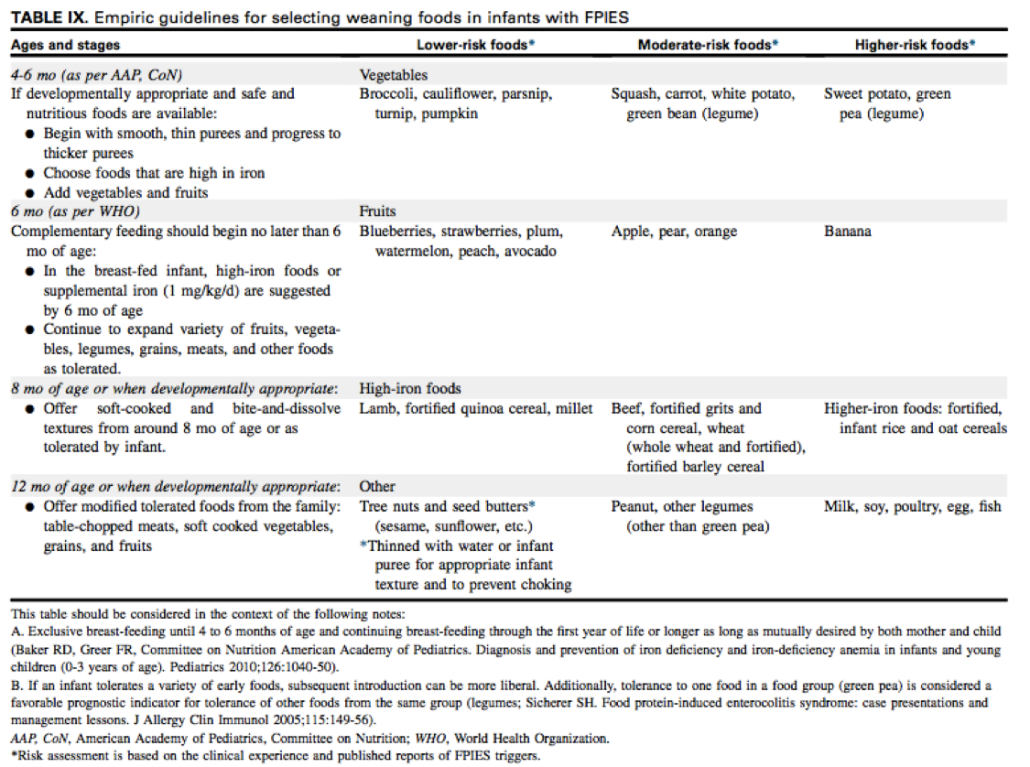Believe it or not, FPIES, Food protein-induced enterocolitis, was beginning of my love story with Feed to Succeed. I first met Betsy, the owner of Feed To Succeed, at a dinner lecture on FPIES. We quickly realized we had lots in common in the pediatric nutrition world, which eventually led to me becoming a pediatric dietitian with Feed to Succeed.
So what exactly is food protein-induced enterocolits (FPIES)? Well food allergies can be divided into IgE-mediated and non-IgE mediated reactions. FPIES is a non-IgE mediated food allergy. This means IgE antibodies do not cause this reaction to food. Since IgE antibodies are not involved, this allergic reaction to food is delayed (anywhere from several hours to several days) and causes symptoms over a long period of time (as opposed to anaphylaxis or throat closing reaction). FPIES presents with gastrointestinal symptoms such as vomiting, diarrhea and dehydration. The most common culprits are cows milk (CM), soy, and grain. However, any food may cause FPIES.
If your child is presenting with these gastrointestinal symptoms, it is important to discuss this with your pediatrician or pediatric gastroenterologist. If a diagnosis of FPIES is made, working with a pediatric dietitian is important in order to make diet modification to help manage their nutrition. Nutritional management will consist of eliminating the food or foods that your child or infant is allergic to, while making sure they continue to receive all the necessary nutrients. For example, if your child or infant is allergic to cows’ milk, they will need diet modification to assure they are receiving adequate protein, calcium and phosphorus (among other nutrients).
The Journal of Allergy and Clinical Immunology recently published guidelines on the management of FPIES. In those guidelines, they have a couple of tables with really useful nutrition information. One of them nicely outlines what foods can be incorporated into you child or infant’s diet to assure appropriate nutrition in eliminating some of the most common FPIES triggers.
These guidelines also provide a table for introducing foods (or weaning from formula if CM is the trigger) to your infant diagnosed with FPIES.
Please keep in mind, with a diagnosis of FPIES, it is imperative to work closely with a pediatric gastroenterologist and pediatric dietitian for the correct medical management and nutritional management of your child. While these guidelines are helpful and informative, they do not substitute working with medical professionals.
Nowak-Węgrzyn, Anna, et al. “International consensus guidelines for the diagnosis and management of food protein–induced enterocolitis syndrome: Executive summary—Workgroup Report of the Adverse Reactions to Foods Committee, American Academy of Allergy, Asthma & Immunology.” Journal of Allergy and Clinical Immunology 139.4 (2017): 1111-1126.




